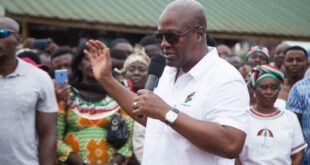All of the Ghanaian government’s legacy obligations dating back to 1992 were included in the Bank of Ghana’s (BoG) loan to the government, which was written off, causing enormous losses.
It included the accumulated overdraft of 2022, the overdraft to COCOBOD, the Covid-19 Bond, and even the BoG holdings of the government-issued Tema Oil Refinery (TOR) bonds and the Telecom Malaysia (Ghana Telecom Bonds) bonds.
According to a declaration made by Dr. Ernest Addison, Governor of BoG, the total amount of claims against the government and the Ghana Cocoa Board (COCOBOD) as of 2015 was roughly GHC13 billion.
Almost all lending from the International Monetary Fund (IMF), including the Extended Credit Facility and the Rapid Credit Facility during the COVID-19 pandemic, and all financial sector resolution bonds have all been added as BoG lending to government, he emphasized, underscoring the fact that the debt is not just about recent debt.
Specifically, he cited the application of IFRS 9 to estimate probable credit losses over the tenor of government debt held by BoG as the source of the losses reported, which were technical losses resulting from the haircut.
As a result, he claimed that BoG will not lose any money as a result of its operations in 2022.
Instead, he said that it should be viewed as a representation of the whole cost of the economic and social catastrophe the nation endured over time and an effort to address a significant structural issue with the economy.
Dr. Addison emphasized that the Bank has experienced negative equity before, noting that very significant exchange rate depreciations during the early years of structural adjustment caused revaluation losses that caused the Bank to experience negative equity.
“Indeed, anytime the economy faces major challenges, the Bank of Ghana balance sheet suffers, and the equity position moves into negative territories,” he said.
The Central Bank Governor indicated that similar negative equity was incurred by the BoG in 2017 and 2018 as a result of the impairment of previous liquidity support loans made to insolvent banks in 2015 and 2016. These loans were impaired by external auditors due to the uncertain prospects for recovery from those insolvent banks.
In spite of this, BoG bounced back and earned a profit of GH1.6 billion in 2019, GH1.5 billion in 2020, and GH1.4 billion in 2021.
Dr. Addison is certain that the current financial situation of BoG won’t have a negative effect on the Bank’s operations.
Before the necessary actions were performed, he claimed that this conclusion was verified by the Technical Assistance mission of the International Monetary Fund (IMF).
According to the IMF team, BoG was and would continue to be financially solvent in terms of monetary policy because it generated enough revenue to do so.
The governor of the central bank confirmed that BoG had adequate capital, which amounted to 15% of its total liabilities.
He stated that the Bank should keep all profits and that a reassessment should be conducted in 2027 in accordance with the IMF’s advice.
He assured that during this time, the Bank will also be able to lower its operating expenses.
Source: Ghanatodayonline.com
 Ghanatodayonline.com News, Politics, Health, Education & More
Ghanatodayonline.com News, Politics, Health, Education & More



